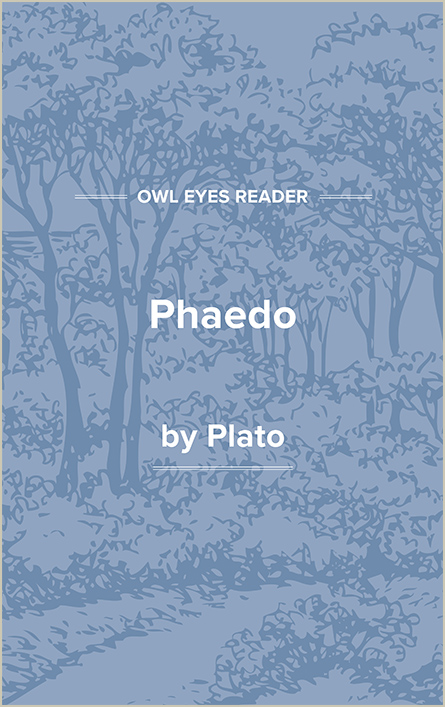Analysis Pages
Themes in Phaedo
Themes Examples in Phaedo:
PHAEDO
🔒"that knowledge is simply recollection..." See in text (PHAEDO)
"I can only say in answer—the living..." See in text (PHAEDO)
"thyrsus..." See in text (PHAEDO)
"How singular is the thing called pleasure, and how curiously related to pain, which might be thought to be the opposite of it..." See in text (PHAEDO)

